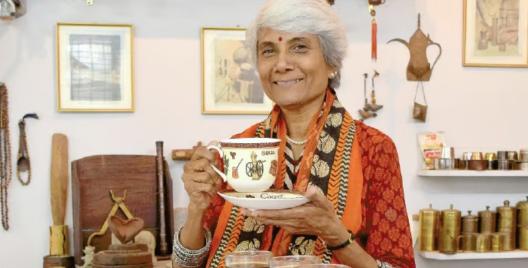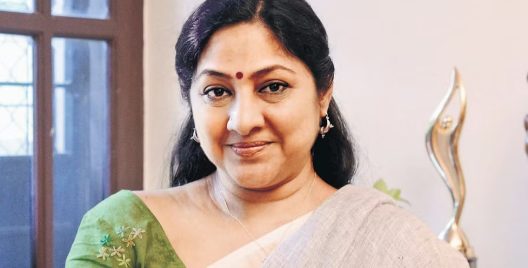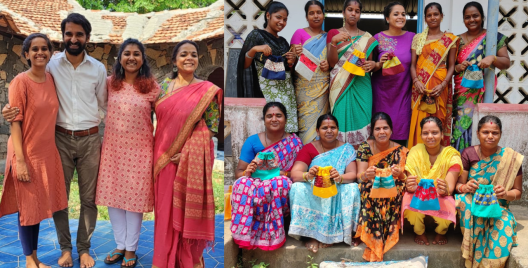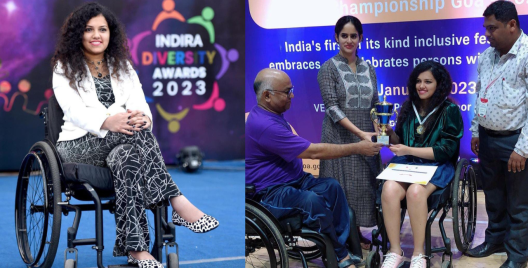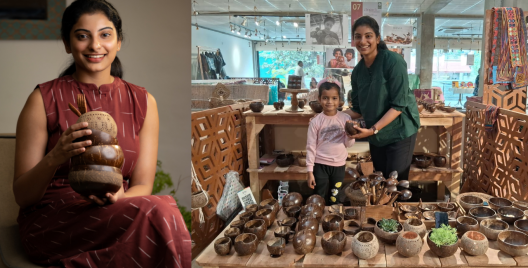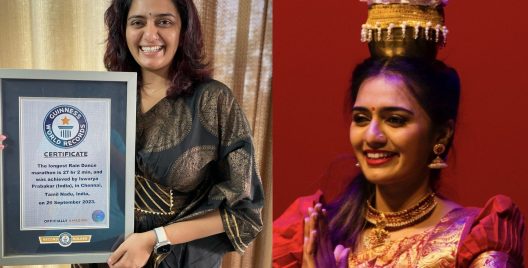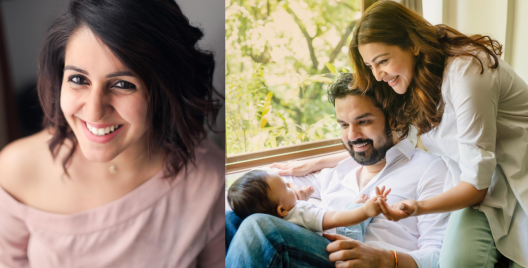Her story is well known, an unfortunate incident occurred when she was 18 years old when she suffered a spinal cord injury that left her quadriplegic. For 10 years, she lived in isolation and in the care of her parents. When one day after losing her father, her mother also had to undergo a by-pass surgery, a thought dawned on her about how she would manage without any family members helping after her. This question led to the beginning of Soulfree, a charitable trust that aims at helping the ones with special needs to accept their new bodies and lives and work towards a future of self-sustainability. In an exclusive interview with JFW, she tells us her story :
“So, my father’s arteries were blocked, although he had been very fit and active, at the age of 57, he had a heart attack one night and the next afternoon, he passed away. 4 days after that, my mother had a heart attack. I was faced with the scenario where I had an 80-year-old grandmother, and a mother needing by-pass surgery with no idea about our finances, no idea about how to gain an income because I’m a quadriplegic and was unable to do anything for myself. A couple of years after my accident, I wanted to join college. At that point I was told that there are no lifts or ramps, and 15 days of practical classes, why do people like you come to study? At that time, my father got me books and I studied at home, it was like homeschooling.”
When my mother needed the surgery, I had to become the decision-maker. So, at that point, I was feeling sorry for myself and was really scared. When my mother had to go through bypass surgery, I had to decide which hospital and doctor to take her to and find out where to get the money for all that. We had to relocate to Chennai from Thiruvanamalai for 3 months during her surgery. The most painful and scary thing was, while my mother was in the hospital, who was going to look after me. I am dependent on somebody else for my most basic functions including my bowel movements. At that time, my father’s friends said that she was going to undergo a quintuple bypass, a 7-hour surgery. What are you going to do if your family is not around to take care of you?” That came as a real shock to me. At that moment of utter desperation and desolation, Soulfree was born. When I googled, there wasn’t a single place that I could go to, where there are trained staff that are capable of taking care of a person in my position. When I told my mother, she said, “You be the change.”

“I did a degree course in Medical Sociology by correspondence where I didn’t need to go to college. Even before Soulfree was established as a trust, I was helping people in whatever capacity I could. Individuals, who need help, I would support them by providing them with a wheelchair. 2 years after the surgery and the move back to Thiruvanamalai from Chennai, we were doing our work but things were not official. Slowly the scale of activities started becoming big and I wasn’t able to support it financially. Eventually, in August of 2013, we registered Soulfree as a trust. At that point, around 100 people gave us cheques. We have to get the cheques processed within 90 days of issuing, but they refused to even open a bank account for me. Everything was a battle. To do the right thing, to help people is the hardest thing in India.”
“For the longest period of time, Soulfree did not have infrastructure. What I started doing was I became a motivational speaker, organically. Schools, colleges and offices started calling me to speak to the people because I provided them with a new perspective. Apart from my travel and stay, I don’t want anything else. I have enough money to support myself and my family. I wanted them to make a contribution to Soulfree. It was a double benefit for me, I was able to positively impact their lives and get the money to where it’s needed the most. Now we do something called the Outreach program where we do peer counselling over the phone. Many of them are stuck in the house and they feel like they are the only ones being punished by God, so the first step is to change that narrative. Then we would give them wheelchairs, hospital beds and medical support, also seed funding if they want to start a business. But after a few years, I realised that how many things you help them with, you need to teach them to be financially independent.”
“We now have 20,000 square feet equipped with state-of-the-art facilities where we provide international standards of care. All therapies are free, we have a temperature-controlled wheelchair-accessible hydrotherapy unit. What we are offering is a functional and experimental framework that we feel can become the blueprint for other such centres across India.”
“I believe that life is not about what we cannot do, but what we choose to do with what we have been given. I have died twice, I was dead for 8 minutes once, and my body turned blue. The fact that I’m breathing, that most of my brain cells seem to be intact is a miracle.”

Soulfree has very concrete plans for the future. There are three programs- physical rehabilitation, psychological rehabilitation and socio-economic rehabilitation. In the physical and psychological aspects, we are doing well. For people with lower-level injuries, that is, they can walk with callipers. For example, we help them set up a chai stall or a pani-puri shop. Where they can have long-term self-sustaining financial independence. But for people with higher level injuries like me, where the wrists and finger movements are impaired, how do they get a job and earn? We are starting a program called SoulVoice which is a learning institute. We want to generate voice-based or home-based home opportunities for our people.
Then we have SoulCare. For example, there was a person whose story really shook me. He was a paraplegic and he sent me a distressed WhatsApp message telling me that his mother had collapsed on the floor. None of the neighbours helped him. Then through the government, we sent them help and found out she had food poisoning. She was in the hospital for 1 week and this guy cannot even drink water on his own. This is where the SoulCare project comes in. A few foundations got in touch with me to work with people from rural areas who have dropped out of college, acid attack survivors, and young Indians who are not able to get dignified work. They asked me if I could create jobs for them so that they have a viable career option. I want to create a PCA – Personal Care Attendant who does a 1-year course. We first have to spend a month counselling them to be able to work through their trauma and issues.
The third is to create a self-sustaining village called Shambala. Here we will run a business that will employ people on wheelchairs, whip will live there with the benefits and profits they generate. They will live in a community with people like them.”
I don’t believe Soulfree is an NGO, I believe it’s a way of life. We need a tolerant and inclusive society that believes in spreading light and love around.





